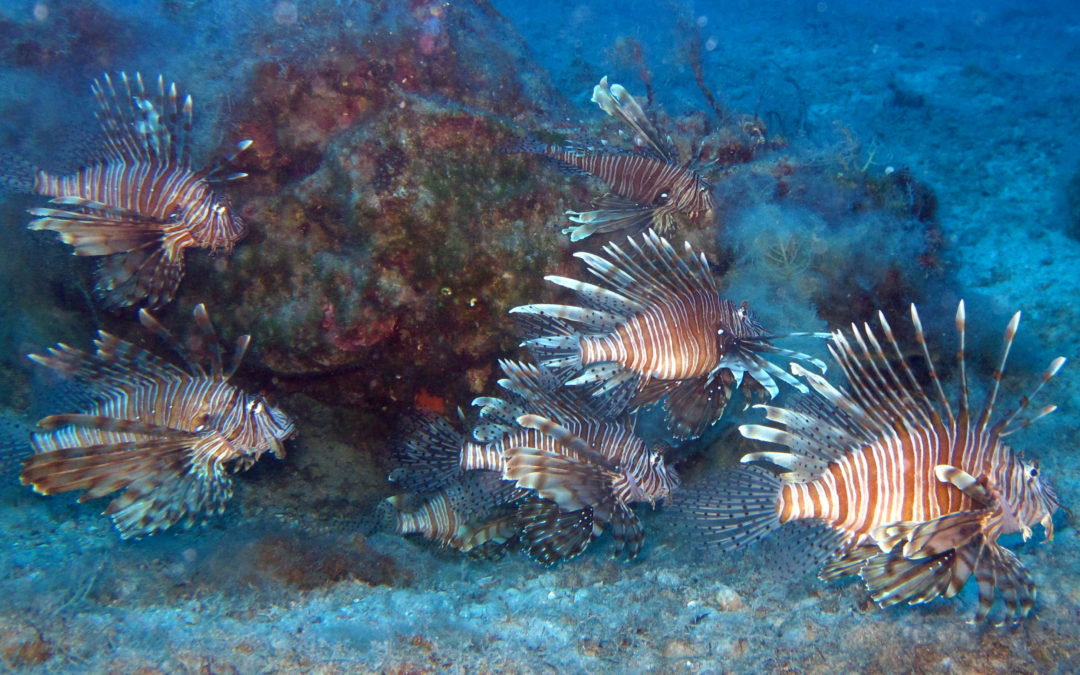Know thy enemy: Behavioural study approach to manage and reduce invasive lionfish populations in the Eastern Mediterranean
Rationale: Biological marine invasions affect not only coastal, shallow habitats but also deep-water communities. It is crucial to increase knowledge on the particular set of traits that confer the non-indigenous species (NIS) the ability to spread, stablish and thrive in detriment to the local biodiversity. Behavioural traits seem to play a role determining which NIS might become invasive and therefore, problematic to the local ecosystems. It is through the study of those behavioural traits that opportunities arise for the management and control of invasive species, such as the lionfish (Pterois miles) in the Mediterranean. A successful management of the lionfish is based on the knowledge of the ecology and biology of this species. Management actions are thus taken accordingly, like for example, by concentrating efforts in the most susceptible parts of its life cycle or behavioural traits (“know thy enemy”, Sun Tzu, ca. 5th century BC).
Overarching goal: Reduce the populations of the invasive lionfish in the Mediterranean
General Goal: Produce information on the invasive lionfish behaviour to be incorporated into actions for the management of this bioinvasion
How: By performing in situ behavioural studies of lionfish communities
Study Sites: Deep-water locations (35-55m depth) inside and outside Marine Protected Areas in Cyprus
Duration: 01.01.2018 – 31.12.2021
Collaborators: University of Nottingham, UK; University of Cyprus; Department of Fisheries and Marine Research, Cyprus; The Cyprus Institute; IUCN-Centre for Mediterranean Cooperation, Spain; Nautilus Scuba Career Center, Nicosia, Cyprus


Recent Comments